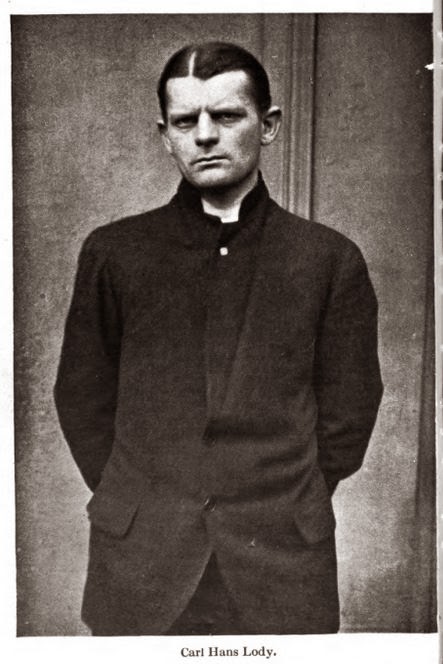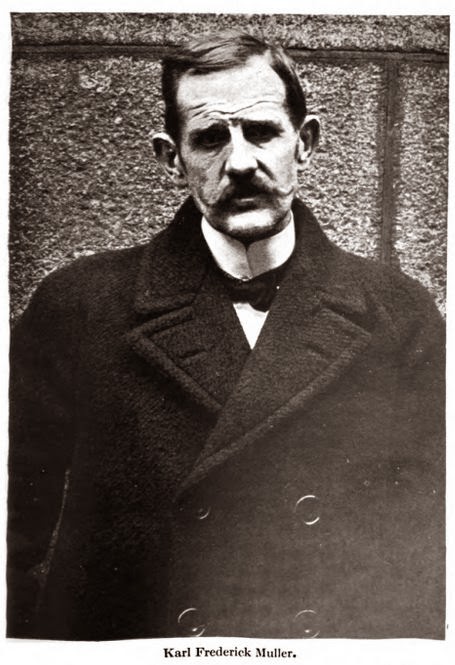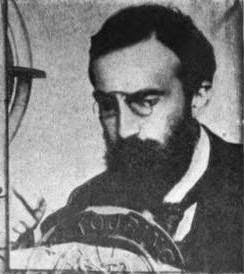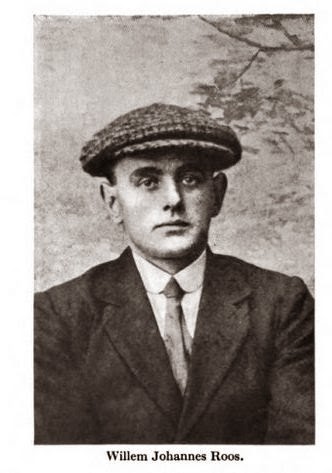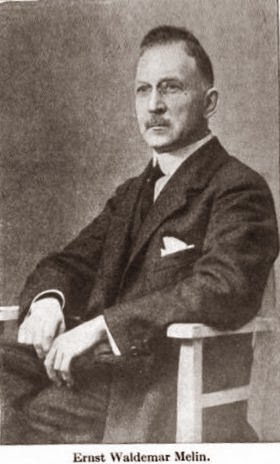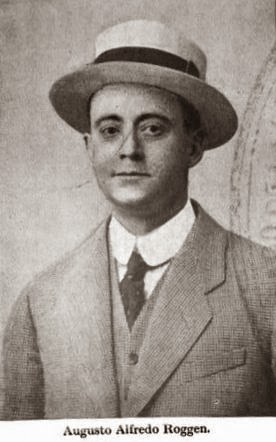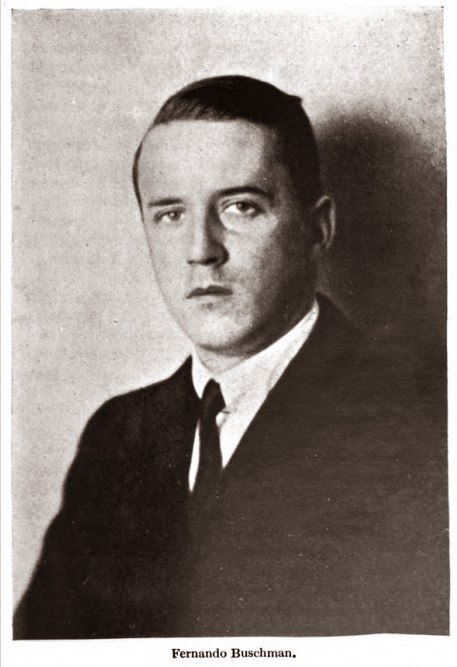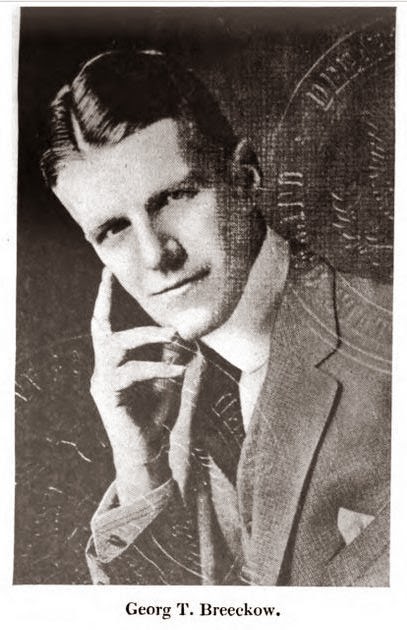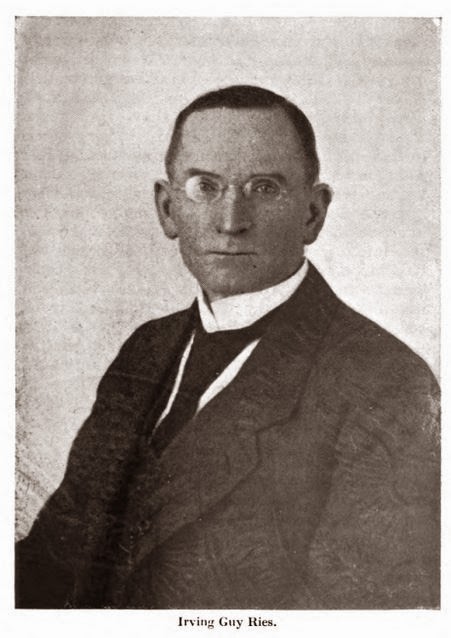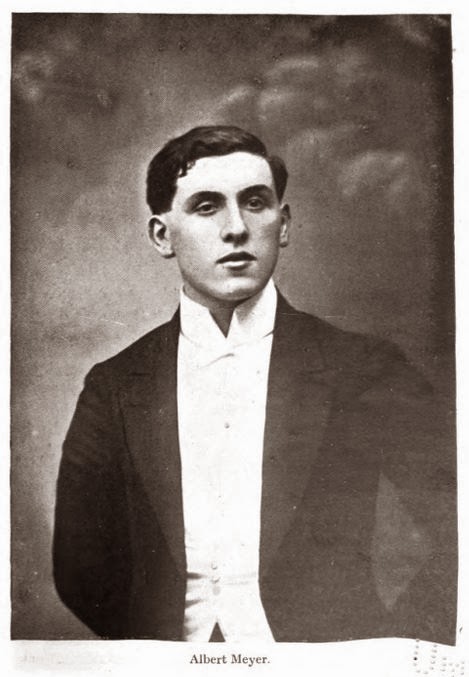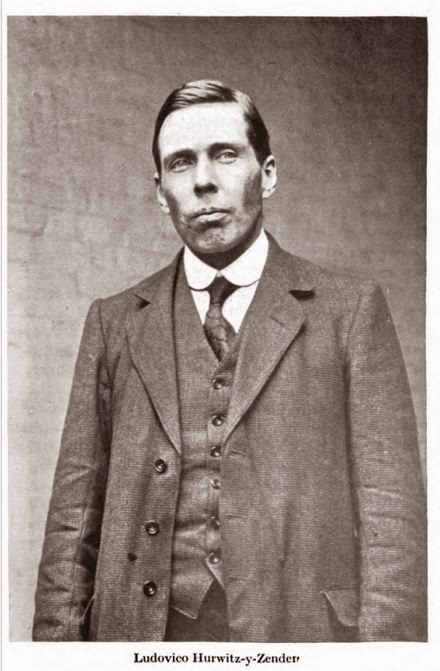Do not go gentle into that good night,
Old age should burn and rave at close of day;
Rage, rage against the dying of the light.
Though wise men at their end know dark is right,
Because their words had forked no lightning they
Do not go gentle into that good night.
Good men, the last wave by, crying how bright
Their frail deeds might have danced in a green bay,
Rage, rage against the dying of the light.
Wild men who caught and sang the sun in flight,
And learn, too late, they grieved it on its way,
Do not go gentle into that good night.
Grave men, near death, who see with blinding sight
Blind eyes could blaze like meteors and be gay,
Rage, rage against the dying of the light.
And you, my father, there on the sad height,
Curse, bless, me now with your fierce tears, I pray.
Do not go gentle into that good night.
Rage, rage against the dying of the light.
(Dylan Thomas)
Courage in the Face of Death
How does one “rage, rage against the dying of the light”? Is it an external raging or an internal? Some know that death is coming to get them. Some die a lingering death of illness and sickness. They can prepare. Others die shockingly quickly. Facing death is an intimately personal moment, but one that speaks to the interior character of a person.
World War I
Eleven German spies faced British firing squads at the Tower of London during World War I. They came from various background and nationalities. They each faced their impending death differently. No one asked these men about their feelings in the moments before their executions. Were they terrified? Most likely.
Mark Twain said “Courage is resistance to fear, mastery of fear — not absence of fear.” There is no courage where there is no fear. It is what you do with the fear that distinguishes courage from cowardice.
For these men, we have only the testimonies of a variety of witnesses and their assessment of the condemned man’s state of mind.
N.B. 2021 – When I first wrote this post, I had background links to each spy on Stephen Stratford’s site but that site has since gone offline. I have changed the links to the WayBack Machine which has snapshots in time of the various pages from Stephen’s siste. You can click through each link in the table of WW1 spies on the linked page to find the specific spy.
Carl Hans Lody – Executed 6 November 1914
Lody was a 39 year old German citizen and a former Naval Reserve officer.
“… at a very early hour, Lody was brought from his cell and the grim procession formed up… [Lody said to the Assistant Provost Marshall, ‘I suppose that you will not care to shake hands with a German spy?’ The APM said ‘No but I will shake hands with a brave man.’]… The procession was led by the Chaplain… followed by the prisoner, with an armed escort marching on either side of him, and the firing party of eight stalwart guardsmen bringing up the rear… Of that sad little procession, the calmest and most composed member was the condemned man himself. A few moments later the procession disappeared through the doorway of the sinister shed [the miniature rifle range; here spies were blindfolded and secured by straps to a chair], and shortly after that came the muffled sound of a single volley [by the 3rd Battalion Grenadier Guards]… When I [Yeoman warder, John Fraser] think of Carl Lody a phrase always slips into my head – just three little words: ‘A gentleman, unafraid!” (Sellers, 42)
Carl Frederick Muller – Executed 23 June 1915
Muller was born in Russia and living in Holland when the war broke out. He was 58 years old.
“[Muller] broke down badly the night before his execution. All through the long hours his guards could hear him sobbing for his wife and children, all forgetful of the evil he had done. He recovered his self-possession a little when the fatal call came with the dawn, and was led forth into the miniature rifle range, where nothing would satisfy him but to shake hands with the firing party. After some little hesitation his wishes were acceded to, and he solemnly went up and down the line of men waiting with rested rifles, shaking hands one by one, telling them he bore no animosity for the duty they had to carry out. Then he was placed in the chair and blindfolded and went to his death, it not exactly with composure, at least with a certain resigned courage which redeemed him in the eyes of the world.” (Felstead, 51).
On Wednesday, 23 June at 6 am in the Miniature Rifle Range at the Tower, the prisoner was calm, shook hands with me [medical officer ] and thanked me. I led him to the chair which was tied to short stakes driven into the ground, he sat on it quietly and the sergeant buckled a leather strap round his body and the back of the chair and then blindfolded him with a cloth.” (Sellers, 62)
Haicke Petrus Marinus Janssen & Willem Johannes Roos – Executed 30 July 1915
Janssen and Roos were two Dutchmen who had been recruited by the Germans. Janssen was about 30 years old while Roos was 32 years old.
“They were to be shot at 6 am and 6:10 am by a detachment of the Scots Guards; not in the miniature rifle range this time but in the Tower ditch… Janssen was led forth to face the firing-party. His iron nerve, which had not deserted him throughout, held good to the finish and he died as he had lived, a brave man.
[After Janssen had been shot], [Roos]… eyed the fatal chair, from which the bleeding body of his accomplice had just been removed, with a fair show of indifference, begging leave to finish the cigarette he had requested as a last favour. That ended, he took one last look at it, then threw it away with a gesture which represented utter contempt for all the frailties of this world. With apparently no more interest in the proceedings, he seated himself in the chair. There was a momentary twinging of the face as they fastened the bandage around his face, but that was all. He too died bravely, and met his fate with a courage which should evoke nothing but admiration.” (Sellers 79)
Ernst Waldemar Melin – Executed 10 September 1915
Melin was an out-of-work Swede. He was 49 years old.
“[Melin] took the three weeks which intervened before his execution with the greatest of resignation, and proved a model prisoner.When the time came for him to face the firing party he shook hands with the guard, thanked them for the many kindnesses they had shown him and died like the gentleman he had undoubtedly once been.” (Felstead, 134)
Augusto Alfredo Roggen – Executed 17 September 1915
Roggen was a 34 year old Uruguayan whose father had been German.
“The execution took place at the Tower on September 17th, the condemned man meeting his fate quite boldly. Indeed, he marched out to the chair with a defiant air, refused to have his eyes bandaged, and went to his death with a courage and self-possession which could not but compel the admiration of those who composed the firing-party.” (Felstead, 130)
Fernando Buschman – Executed 19 October 1915
Buschman was born in Paris, France of a naturalized Brazilian father (originally from German) and a Brazilian mother (of Danish extraction). He was 25 years old.
“Buschman accepted his fate like the gentleman of fortune that he had always been, thanking his judges for the scrupulously fair trial he had been given. While waiting for the sentence to be carried out he requested that his violin might be given to him as a solace to his last hours… For hours in his cell Buschman would discourse beautiful music oblivious to the death that awaited him. When taken to the Tower the night before his execution he again asked for his violin. It was given to him, and for hours he lost himself in a whirl of slow, dreamy music which so filled his heart and soul that the matter of his approaching death seemed to have passed out of his memory. Nobody was sorrier than his guard when the time came to lead him forth for execution, but Buschman did not appear to mind. Picking up his violin he kissed it passionately, saying: ‘Goodbye, I shall not want you any more.’ He refused to have his eyes bandaged, and sat in the chair facing the rifles with a courageous smile which made the hearts of the men composing the firing party ache with pity at his ignominious end.” (Felstead, 124)
Georg Traugott Breeckow – Executed 26 October 1915
Breeckow was born in Germany and later apparently became an American citizen. He was 33 years old.
“The last scenes in Breeckow’s misspent life will live for ever in the memory of those compelled to witness them. During the five weeks between his condemnation and execution the spy broken down completely and passed his time in a state of apathetic existence which might have interested a psychologist but certainly disgusted the hardened military officials entrusted with his care. On the morning of his execution he was led out in a state of collapse. When placed in the death chair he produced a lady’s silk handkerchief, evidently a relic of some past love affair, and requested that it might be placed around his eyes instead of the usual bandage. But when the sergeant-major tried to meet his wishes, it was found that the handkerchief was not large enough, so it was knotted to the bandage and then tied.
Breeckow was by this time in a dreadful state of agitation. He was literally shivering with fright and it was difficult to keep him in the chair. So the officer in charge told those strapping him in to hurry up. The last preparations were quickly gone through: Breeckow’s chest was bared to the cold morning air, and the waiting firing-party came to the aim. The order was given to fire, and simultaneously with the crack of the rifles the figure in the chair gave one tremendous, sickening bound. There is little doubt, as was subsequently proved at the inquest, that Breeckow had died of heart-failure before the bullets of the firing-party had reached his chest.” (Felstead, 119) [N.B. Sellers notes that on Breeckow’s death certificate the cause of death was given as “violent gunshot wounds of the chest.” (p. 138)]
Irving Guy Ries – Executed 27 October 1915
Ries (a pseudonym) was an American who only gave his real name shortly before his execution. He asked that it never be revealed so that his aged parents would never learn of his dishonour. He was 55 years old. [N.B. Several resources suggest that Ries was actually named Carl Paul Julius Hensel. I wrote a blog post in the spring of 2021 that examined this case in more detail.]
“[Ries] was removed to Wandsworth prison pending his execution, and while there proved a model prisoner. All his time was spent in reading and, outwardly at any rate, he gave the impression of a man who had done with earthly cares and was only waiting for a preordained end… When led forth for execution he took one philosophic glance at the chair which was soon to hold his dead body, and then, with a grave smile, requested that he might be permitted to shake hands with the firing party. This privilege was accorded him, and when it was over he remarked: ‘You are only doing your duty as I have done mine.’ He died like a brave man, whose efforts to spare pain to his aged mother and father may be counted to him in atonement of his sins.” (Felstead, 151)
Albert Meyer – Executed 2 December 1915
Meyer claimed to be a Dutchman and was 22 years old.
“The scene which took place at his execution at the Tower on December 2, 1915, revealed the cowardly nature of the man to the full. It was fully expected, judging by his demeanour during the period he was waiting to be shot, that he would prove awkward, but nothing untoward happened until the morning of his execution. When the dread summons came in the cold dawn he was then in an hysterical state and when escorted from his cell suddenly burst into a wild effort to sing ‘Tipperary.’ His guard attempted to silence him, but all in vain.
He stopped on reaching the miniature rifle range where he was to be shot and cast a raving eye at the chair standing in the middle. Then he burst into a torrent of blasphemous cursing, reviling his Maker and calling down the vengeance of Heaven on those who had deserted him. Struggling fiercely with his stalwart guard, he was forcibly placed in the chair and strapped tightly in. Before the bullets of the firing party could reach him he had torn the bandage from his eyes, and died in a contorted mass, shouting curses at his captors, which were only stilled by the bullets.
Meyer, along with Rosenthal [who was hanged], was the youngest spy to be shot. But, unlike the latter, who went to his doom with some semblance of courage, he was the most arrant coward who ever lived.” (Felstead, 158)
Ludovico Hurwitz-y-Zender – Executed 11 April 1916
Zender was a Peruvian and an army reserve officer. He was 38 years old. [N.B. 2021 – I have recently come across information which suggests that “Hurwitz-y-Zender” was a pseudonym.]
“[Zender] was executed in the Tower on April 11th, 1916, nine months after the date of his arrest, and met his fate with a fair amount of calm.” (Felstead, 142)
Resting in Eternal Peace
Whether they faced their executions with courage or cowardice, each of the World War I spies faced the same fate, death.
The spies were buried in East London Cemetery, Plaistow. Carl Hans Lody’s grave is marked by a headstone placed by friends of the family.
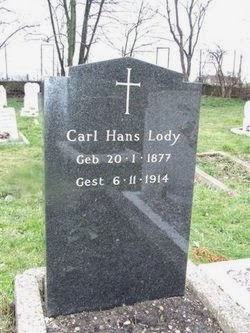
The other spies were interred in common graves that have been reused several times over. A common headstone commemorates their final resting places and includes the names of of seven German prisoners who died of ill health or accident.
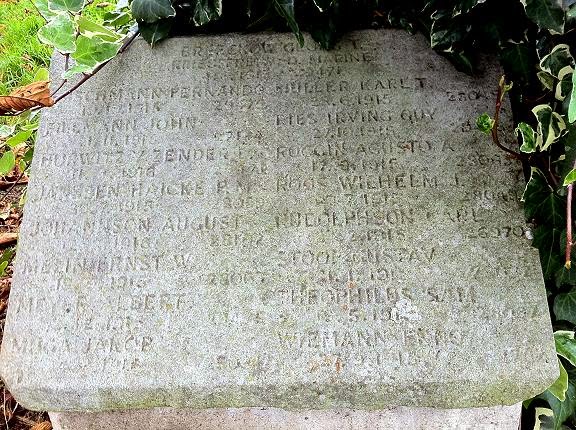
(From Find-a-Grave)
References
After the Battle Magazine, volume 11.
Felstead, Sidney Theodore. German Spies at Bay, 1920.
Find A Grave website.
Sellers, Leonard. Shot in the Tower, 1997.

